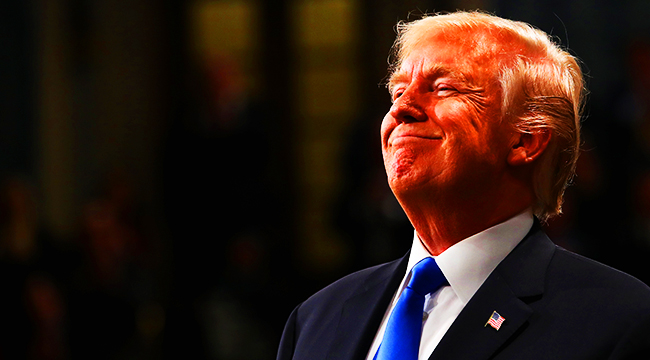
One of the legal complications with Donald Trump as president is his investments. This is two-fold: One, we don’t know much of what he owns, who he owns it with, or what his financial exposure is. On the flip side, the things he does own, or at least manage, are very visibly his, and he profits off them, which has created all sorts of ethical issues around Trump properties. But, according to the managers of Trump’s D.C. hotel, they’ve been subject to a far different ethical issue, namely a shadow boycott of their restaurants. But is a boycott? Or just a thorny ethical problem?
Grub Street has a look at the managers, who grumpily point out that despite an outpost of New York steakhouse BLT Prime and the Benjamin Bar, several weekly events, and other content, the press offers almost no coverage:
Director of sales and marketing Patricia Tang tells the Washington Post’s Tim Carman that the hotel’s restaurant events can’t even make the local papers’ weekly events roundups. “Not just dessert night, but also cheese night, holiday events and other activities around the hotel,” she says.
The hotel’s leadership go on to object that the press blackout is despite Trump having “nothing to do” with the hotel, but just the opposite is true. Leaving aside the fact his name is in giant gold letters all around the building, he owns the Old Post Office, the facility the hotel is built in, through a revocable trust via “DJT Holdings LLC” and a contract with the federal government’s General Services Administration. The hotel sells Trump wine. If you rent a room, buy a meal, have a drink, or pick up something from the gift shop, it directly benefits Donald Trump.
There are two arguments here. Well, three, really: As Vanity Fair’s brutal destruction of a Trump restaurant showed, be careful what you wish for. But that aside, D.C. has a vibrant food scene heavily influenced by Southern cooking, and has many more interesting places to eat than a chain steakhouse or a hotel lobby bar. Even steps from the Old Post Office are dozens of fascinating places to eat, from historical landmarks to upstart food carts. D.C. food critics aren’t covering Del Frisco’s, The Palm, or Morton’s that heavily, either. Why would they, when the Union Market alone has more compelling food?
But the second is that Trump connection is problematic for any journalist, even a restaurant critic. If they accept a free meal, has the newspaper received consideration from the president? If they pay for a meal, does that mean the newspaper is slipping the president a few bucks? These aren’t ethical questions that keep people up at night; a free bottle of wine is unlikely to sway coverage of the Washington Post. But these little concerns can and do tilt the balance for journalists every day. If the food’s good, but not a stand-out, and your editor is worried about potential ethical problems, then why bother?
In short, Trump’s D.C. hotel faces the same problem the rest of the Trump empire has, namely a branding one. Everybody has a feeling about the name on the side of the building, and unless there’s a compelling public interest, riling up those feelings just isn’t worth it for food and travel critics. Unless they’ve got a way to solve that problem, they’re just going to have to expect food and travel types to stay well away.






